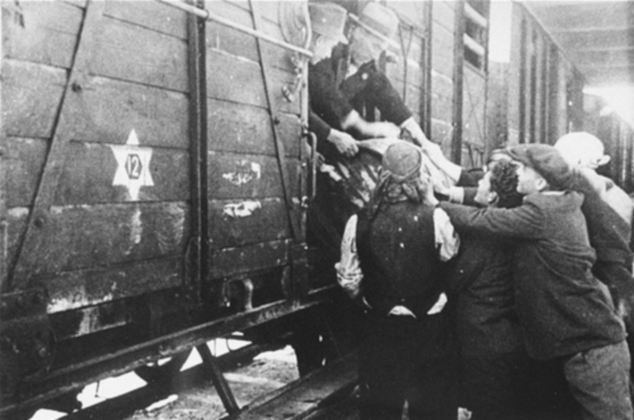Over the course of WWII, over 750 potential Holocaust victims escaped their fate by leaping from moving trains. While the notion seems highly risky, it does not necessarily seem as risky as life at one of Hitler’s aptly called “death camps.” The high number of escapees is something that has come about through recent research. It is surprising in that most prisoners were usually shipped together on the WWII trains, meaning that one person’s escape might mean the loss of a loved one in some instances.
One of the more innovative such escapes was that of prisoner Leo Bretholz, a man who was destined for Auschwitz in November of 1943. He was on a cramped and unsanitary wagon, as was the norm for Jewish prisoner transport during WWII, when he realized he could use the fact that the latrine was overflowing to his advantage. Already dealing with illness in the cramped conditions of the train, Bretholz used the soiled water to strengthen his grip on clothing used to bend the bars separating him and another escapee from the outside. He and his comrade then waited to pass by a darkened area, at which point they leapt to freedom.
Bretholz was one story among many, which was discovered as the result of recent research. The research was done through the course of several interviews as well as looks into archived records, and there was a surprising trend in that of the many ways a prisoner could have cheated death in WWII, trains played a consistently significant part in many survivors’ stories, the Mail Online reports.
Not everyone on the trains saw these escapees as heroes. Aside from the feelings of abandonment at having a fellow prisoner jump ship, many were fearful that they would be punished for another’s escape when they got to the camp. The Nazis had told prisoners in transit during WWII that everyone aboard would be slaughtered if even one should attempt escape. This is quite possibly one of the reasons that this research is only just now coming to surface, as many felt the need to hide their pasts as escapees from other survivors who may not have felt that their actions were just.
Many lost friends and family at Auschwitz and similar camps, WWII train escapees included. Not only did they have to deal with the stigma of having left others to make it without them, but they had to deal with their own personal demons should they hear news of loved ones dying at their intended destination. Nonetheless, they are now brave enough to speak about their experiences and shed light on one more difficult decision faced by internees during the Holocaust. Whether or not one agrees with the stigma they have faced, it is certain that those who survived WWII by jumping from trains have earned the rights to be called “survivors” as readily as those who were fortunate enough to walk away from the death camps.
//
